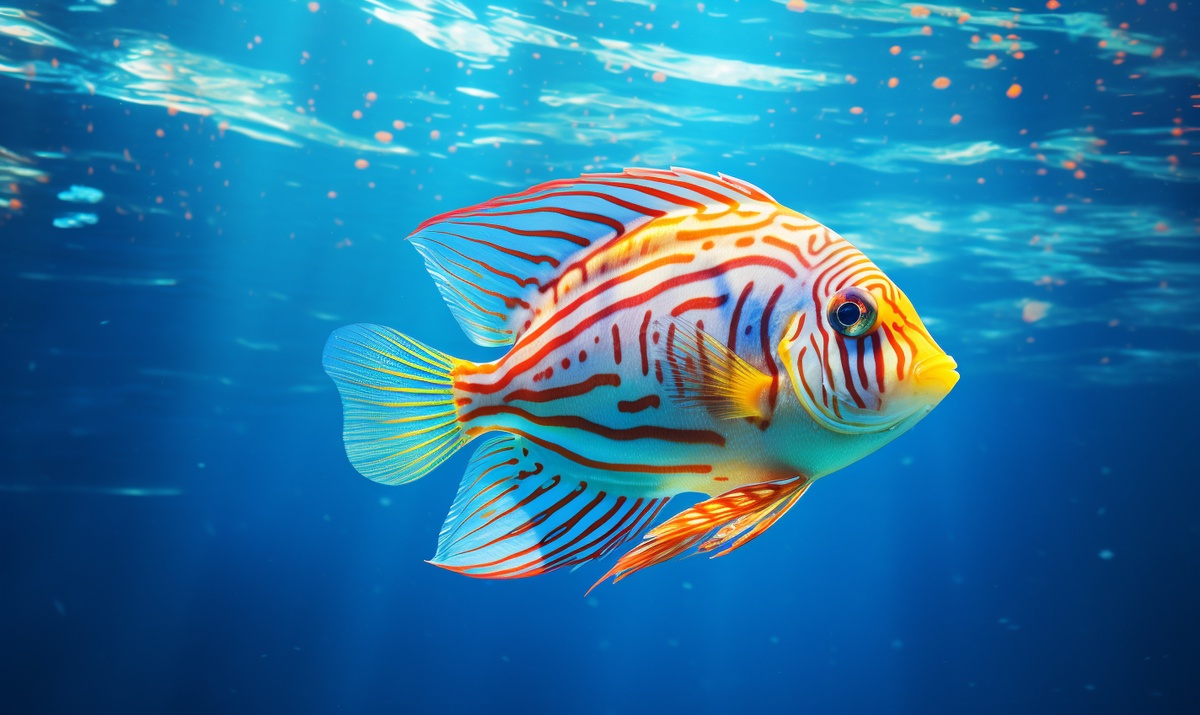The Ultimate Guide to Beautiful Discus Fish
Discus fish, known for their vibrant colors and distinctive round shape, are among the most coveted and cherished species in the world of aquarium keeping. Native to the Amazon River Basin in South America, these mesmerizing creatures have captured the hearts of hobbyists and enthusiasts around the globe. If you're considering keeping discus fish or you're already a proud owner looking to enhance your knowledge, this ultimate guide will provide you with comprehensive insights into the care, maintenance, and appreciation of these beautiful aquatic creatures.
Introduction to Discus Fish
Discus fish (Symphysodon spp.) belong to the Cichlidae family and are revered for their elegant appearance and captivating behavior. They come in a wide range of colors, including shades of red, blue, green, brown, and even wild patterns. The distinctive disc-shaped body, resembling a saucer or a dinner plate, is a characteristic that sets them apart from other fish species.
Quick Facts:
- Scientific Name: Symphysodon spp.
- Origin: Amazon River Basin, South America
- Lifespan: 8-10 years (with proper care)
- Size: 6-8 inches (15-20 cm)
- Temperament: Generally peaceful, but can be territorial during breeding
Setting Up the Perfect Environment
Creating an optimal environment is crucial for the health and happiness of your discus fish. Here's how to set up their tank:
Tank Size and Setup
Discus fish require spacious tanks due to their size and swimming behavior. A minimum tank size of 50 gallons for a small group is recommended, with larger tanks (75 gallons and above) being even better. The tank should be well-filtered and planted to mimic their natural habitat.
Water Conditions
Maintaining proper water conditions is vital for the well-being of your discus fish. Aim for the following parameters:
- Temperature: 82-86°F (28-30°C)
- pH Level: 6.0-7.0
- Water Hardness: Soft to moderately soft
Regular water changes are essential to prevent the buildup of toxins and maintain water quality. Make sure to use a high-quality water conditioner to neutralize chlorine and chloramines.
Decor and Substrate
Provide hiding spots and create a natural environment with driftwood, rocks, and live plants. A dark substrate can enhance the colors of your discus fish and reduce stress by imitating their natural habitat.
Feeding Your Discus Fish
A balanced and nutritious diet is crucial for the health and vibrant colors of your discus fish. While they are omnivorous, their dietary needs should be met with a mix of high-quality pellets, frozen foods, and live foods such as brine shrimp, bloodworms, and daphnia. Regular feeding, multiple times a day, is recommended to accommodate their hearty appetites.
Discus Fish Behavior and Social Structure
Discus fish are generally peaceful, but they can exhibit some territorial behavior, especially during breeding. Keeping them in a group of at least six individuals can help minimize aggression and create a more natural social structure. Avoid mixing them with aggressive or fin-nipping tank mates.
Breeding and Reproduction
Breeding discus fish can be a rewarding but challenging endeavor. To encourage breeding behavior, provide excellent water conditions, a variety of high-quality foods, and appropriate hiding spots. When they are ready to spawn, discus fish will lay eggs on a flat surface. The parents will take turns guarding the eggs and the fry (baby fish). Successful breeding requires dedication and careful monitoring.
Health and Common Issues
Monitoring the health of your discus fish is essential. Look out for signs of stress, such as loss of appetite, color fading, or unusual behavior. Common health issues include internal and external parasites, bacterial infections, and fin rot. Quarantining new fish before introducing them to your main tank can help prevent the spread of diseases.
Conclusion
Keeping and caring for discus fish is a rewarding journey that offers a glimpse into the enchanting world of aquatic life. By understanding their unique requirements and providing a well-maintained environment, you can enjoy the beauty and grace of these captivating creatures for years to come. For more in-depth information and resources, consider exploring the Aquatic Animals Discus Fish Guide.
Remember, each discus fish is a living work of art, and with proper care, you can unlock their full potential to showcase their stunning colors and natural behaviors in your very own aquarium masterpiece.


No comments yet